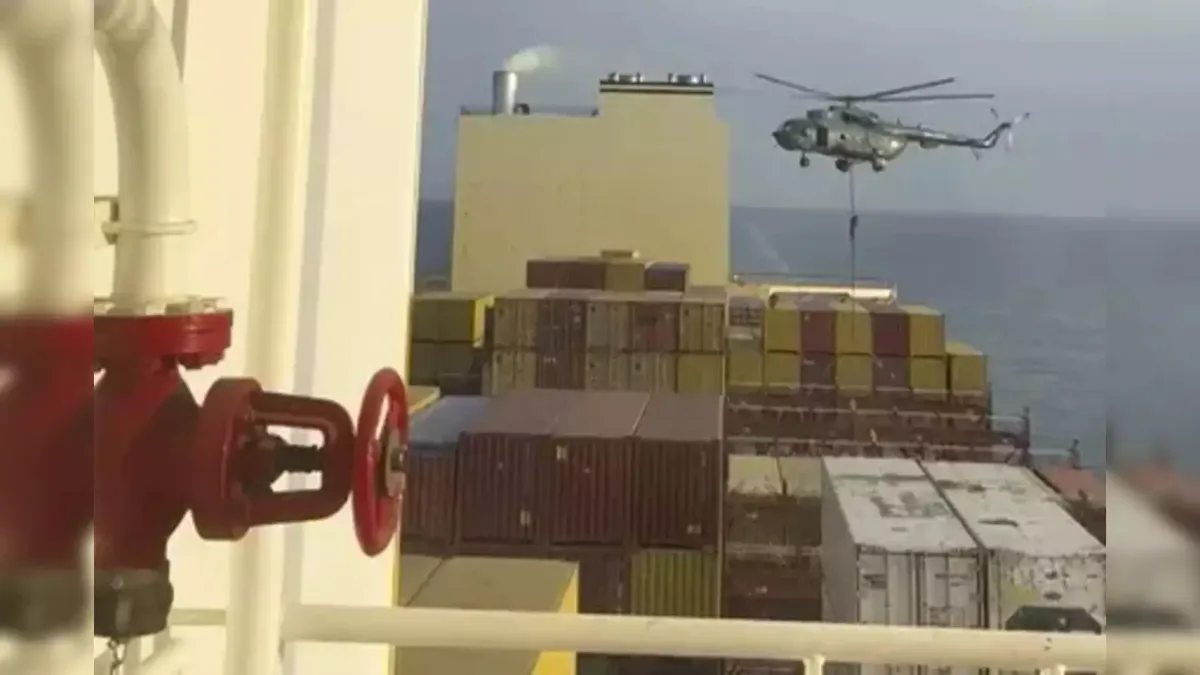In a bid to safeguard the welfare of its citizens amidst escalating tensions between Iran and Israel, the Indian government has intensified efforts to secure the release of 17 Indian nationals trapped aboard the cargo ship “MSC Aries,” seized by Iran’s Revolutionary Guards on Saturday. The vessel, reportedly owned by Israel, was captured in the Gulf of Oman, further exacerbating the already strained relations between the two nations.
Indian diplomatic channels, both in New Delhi and Tehran, are actively engaged in negotiations with Iranian authorities to ensure the swift and secure return of the stranded individuals. This proactive approach follows India’s issuance of an advisory on Friday, warning against travel to Iran or Israel due to heightened tensions, particularly in the aftermath of an attack on an Iranian diplomatic mission in Syria, allegedly carried out by Israel.
The MSC Aries, operated by Zodiac Maritime, fell into Iranian hands close to the critical maritime chokepoint of the Strait of Hormuz. The vessel, which embarked from the UAE port of Khalifa en route to Mumbai’s Nhava Sheva, had a total of 25 crew members on board. The Mediterranean Shipping Company (MSC), the world’s largest container shipping line and operator of MSC Aries, has confirmed the seizure and has pledged its commitment to ensuring the safety of the crew and the vessel’s eventual return.
This incident underscores a pattern of tensions between Iranian forces and Israeli-owned ships, often stemming from their ownership affiliations. Previous encounters have prompted warnings for vessels of Israeli ownership to reconsider transiting through the strategic Strait of Hormuz. The significance of this maritime passage cannot be overstated, as it serves as a crucial route for oil tanker traffic, facilitating the transportation of oil from Gulf producers to global markets, in addition to accommodating container ships.
As diplomatic efforts continue to unfold, the Indian government remains steadfast in its commitment to safeguarding the well-being of its citizens caught in the crossfire of geopolitical tensions. The swift resolution of this situation is not only imperative for the safety of the stranded individuals but also for maintaining stability in the region’s vital maritime trade routes.


